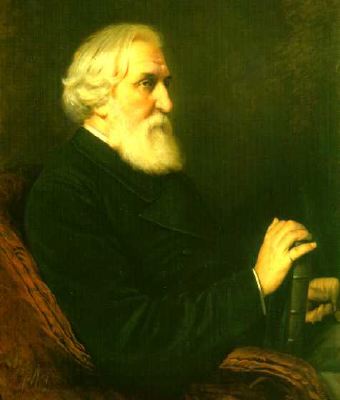Deaths
which occurred on a November 09:
2003
Sgt. Nicholas A. Tomko, 24, of Pittsburgh PA.; he was the
door gunner in a convoy vehicle undergoing a small arms attack in Baghdad,
Irak. He was assigned to the 307th Military Police Company, U.S. Army Reserve.
2003 Muhanad al-Kaadi, head of the US-appointed municipal
council in the poor, mainly Shiite, Sadr City annex to Baghdad, Iraq, shot
by a US occupation soldier guarding the municipal building who stopped his
car instead of letting him through. According to the US , “the driver”
got out of the vehicle and attacked one of the guards, trying to grab his
weapon; another soldier shot the man in the leg and he later died of his
wounds. Later the US admits that the man was al-Kaadi, does not repeat the
allegation that he attacked a US guard, but says that he died by his own
fault for refusing “to follow instructions of the onsite security
officer who was enforcing” regulations “in accordance with the
rules of engagement.” Al-Kaadi, who spoke fluent English, had been
trying to improve relations between the US occupiers and the 2 million residents
of Sadr City.
2003: 17 Muslims, by at least two terrorist
car bombs, just after midnight, in the west of Riyadh, Saudi Arabia, at
the B2 residential compound, which is in the Nakheel neighborhood near the
Muhaya shopping center. Some 120 persons are injured. 5 of the dead and
36 of the injured are children.
2002 Israeli Sergeant-Major
Madin Grifat, 23, by an explosion close to the Gaza Strip enclave
settlement Netzarim, caused by Islamic Jihad to avenge Sawalhe [next].
2002 Iyad Sawalhe, 28, shot by Israeli troops early in
the morning in Jenin. Sawalhe was the head of Islamic Jihad's military wing
in the northern West Bank and had been the main target of Israeli military
incursions in Jenin over the previous two weeks. In revenge, Islamic Jihad
militants would ambush and kill twelve Jewish enclave settlers in Hebron
on 15 November 2002.
2002 Joshua
Guimond, 20, is never seen alive again (except perhaps by secretive
criminals), after shortly past midnight when he leaves a card game in an
apartment at Metton Court on the north end of Saint John's University in
St.Cloud, Minnesota (near I-94), where he was a junior, a political science
major.
2001 Some 235 persons in flash floods in
northern Algeria.
2000 Hussein Abayat, 33, and two women bystanders,
by rocket fired from Israeli helicopter, in Beit Sahur, on the outskirts
of Bethlehem. Several others were wounded. Abayat, who was driving a pickup
truck, was targeted as a commander of the Tanzim paramilitary group active
in the al-Aqsa intifada started on 28 September 2000..
2000
Isa Tsuyev, 59, Russian-imposed Chechen mayor of Alkhan-Kala, near
Grozny, Chechnya, killed by independentist guerillas.
1988
John N. Mitchell, 75, former US Attorney General, Watergate convict,
heart attack in Washington
1980 Marie Germinova Toyen,
Czech artist born on 21 September 1902.
1970 Charles André
de Gaulle, 79, general, Free French leader, then French President
.
1966 Rutherford,
mathematician.
1963 Some 450 die in a coal-dust
explosion and 160 die in train crash (Japan)
1953 Abdul-Aziz
ibn Sa'ud , 73, founder of Saudi Arabia
1953 Dylan
Thomas, 39, Scottish author-poet, in NY.
1952 Chaim
Weizmann, 57, 1st President of Israel.
1947 Mariano
Benlliure y Gil, escultor español.
1942 Graciano
Ricalde Gamboa, en Mérida, Yucatán, profesor e ingeniero yucateco,
quien a los 16 años se graduó de profesor en la Normal de su Estado. En
1910 realizó estudios sobre el cometa Haley. En 1923 hizo cálculos sobre
el eclipse total de sol de ese año. Resolvió la ecuación general de 5º grado,
por medio de funciones elípticas.
1940 Neville Chamberlain,
UK Prime Minister of appeasement.
Just months after he was chased (literally) out of office, Neville
Chamberlain, the British Prime Minister at the outbreak of the European
war, dies. He is best (or rather "worst") remembered for
his rather infamous policy of appeasement toward Hitler in the pre-war
years. Chamberlain met first with Hitler in private consultations
at Berchtesgaden—Hitler's Bavarian mountaintop retreat. The FÚhrer,
who Chamberlain described as a "gentleman," convinced the Prime Minister
to support Germany's territorial demands in Czechoslovakia. Hitler
wanted the Sudetenland, an area in northern Czechoslovakia where three
million ethnic Germans lived. On 29 September and 30 September 1938,
Chamberlain, Hitler, Premier Daladier of France, and Il Duce, Benito
Mussolini, met in Munich to decide the fate of Czechoslovakia. Chamberlain
convinced Daladier that joining England in support of Hitler's demands
would avert war. The German army had already been mobilized, and Hitler
had threatened to march into Czechoslovakia. The Munich Pact, signed
by all four European leaders in attendance, created a new Czechoslovakia,
stripped of the Sudetenland.
Hitler was appeased for the moment, but the Pact left Czechoslovakia
highly vulnerable for German attack. Returning to England from Munich,
Chamberlain boasted the notoriously naïve claim, "I believe it is
peace for our time." These words, as well as Chamberlain's umbrella,
became widely recognized symbols of appeasement. When Germany invaded
Poland on 01 September 1939, Chamberlain issued an ultimatum to Hitler
to immediately withdraw from Poland. Hitler ignored the ultimatum,
and on Sunday 03 September, Chamberlain declared war. By this point,
Britain's faith in its Prime Minister was diminishing quickly. Chamberlain
stayed afloat until Germany launched the Denmark and Norway campaign
in May 1940. Soon thereafter, one of Chamberlain's supporters stood
up in Parliament session and quoted Oliver Cromwell: "Depart, I say,
and let us have done with you! In the name of God, go!" Chamberlain
was driven from the House amid unanimous chants of "Go! Go! Go!" Two
days later, on 10 May, King George VI asked Winston Churchill, then
First Lord of the Admiralty, to succeed as Prime Minister. |
|
